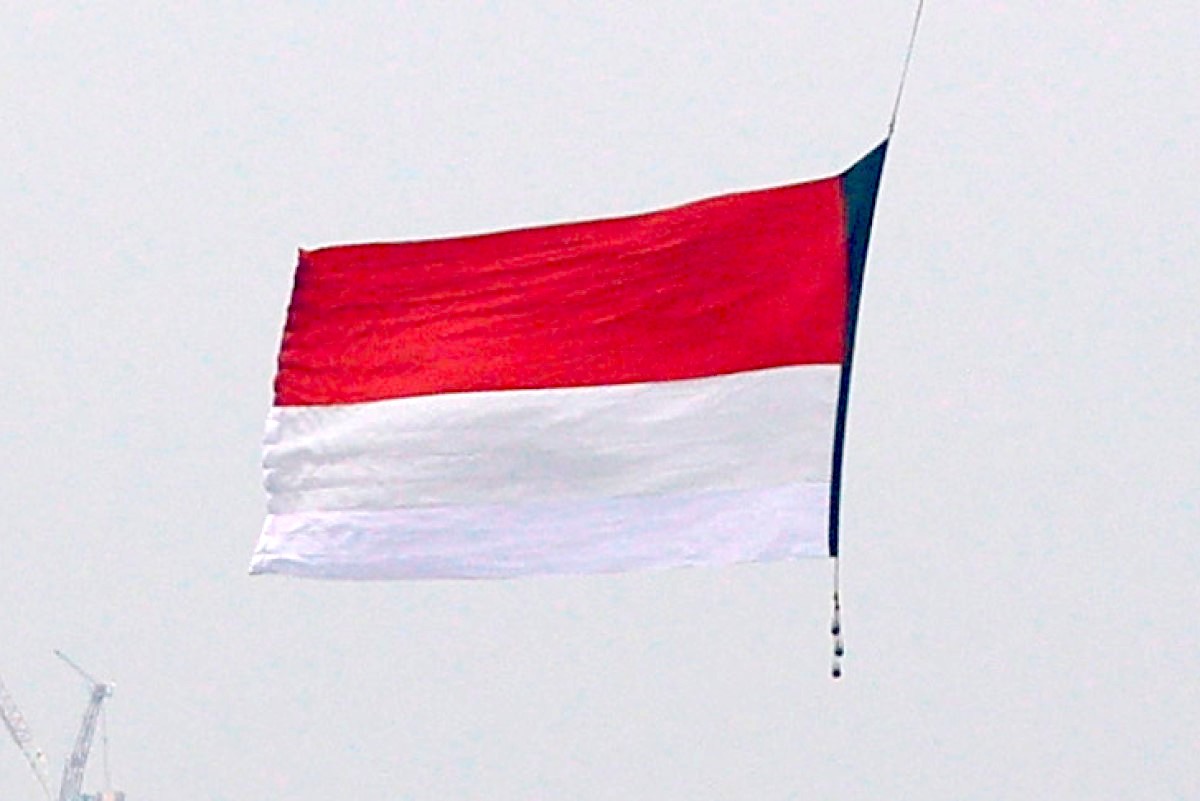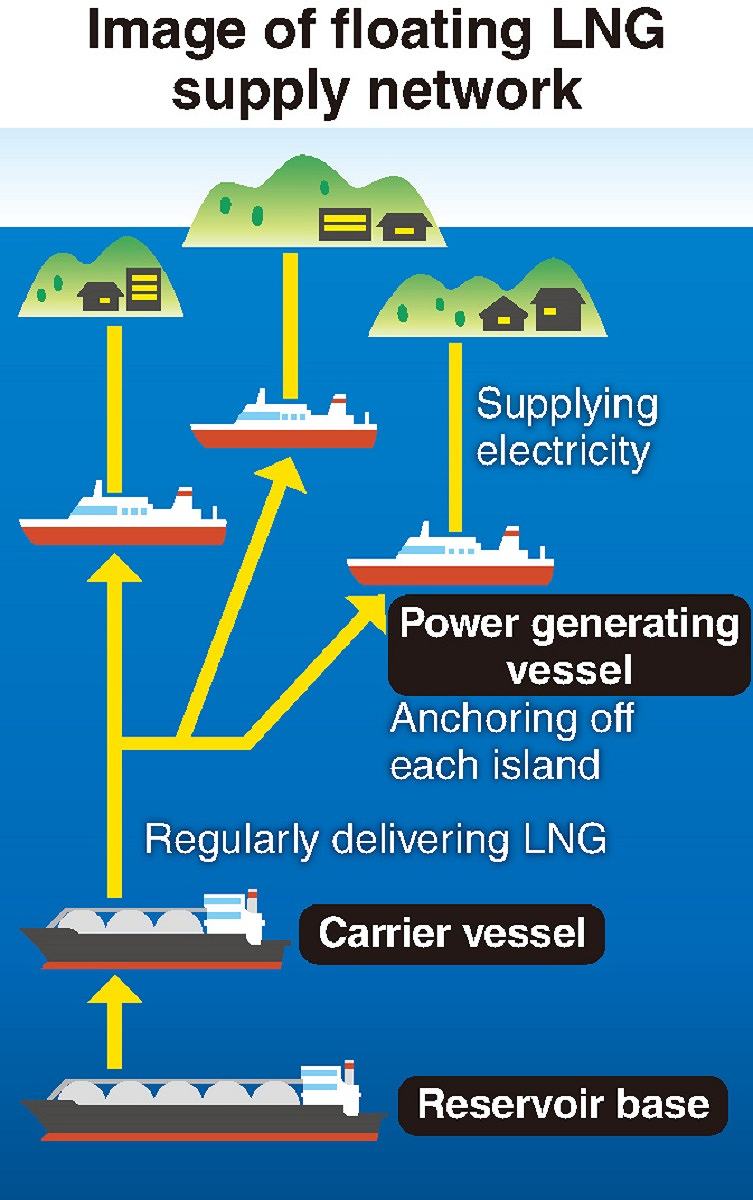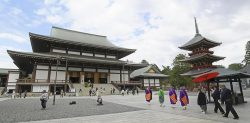
A indonesian flag fly in Jakarta, Indonesia, August 17, 2021.
14:49 JST, January 31, 2021
JAKARTA — The government of Indonesia, a country comprising the world’s largest number of islands, will soon begin building a system of electricity supply networks floating on the sea that will be powered by liquefied natural gas, with assistance from Japan.
It will be the world’s first attempt to deliver electric power from cleaner energy resources to its islands, which rely on petroleum fuels.
The new network system is expected to contribute to measures for preventing global warming.
According to sources, a reservoir base of LNG will be anchored off Ambon, an island in the east of the country. Then, vessels specializing in power generation will be anchored off nearby islands and electric power will be supplied to the interior of the islands.
LNG to fuel thermal power generation will be delivered from the reservoir base to the power generation vessels by shuttles that travel between the two sides.
The Indonesian government will initially build the supply networks on about 10 islands, and increase the number to about 30 in the final stage of the plan.
In the first half of this year at the earliest, business operators of the project will be chosen through tenders, and the Indonesian government aims to begin the operations late next year.
As Japan is the largest importer of LNG, the nation has advantages in related technologies. It is likely that Japanese companies such as shipbuilders, trading companies and gas providers will join the Indonesian project.
There are more than 13,000 islands in Indonesia. On islands with small populations, small-scale power generation using petroleum fuels are used in many cases. But the Indonesian government plans to expand the use of domestically produced LNG, as the fuel is less costly.
With cooperation from Japan’s Economy, Trade and Industry Ministry, the Indonesian government has been considering the floating electric power supply networks using LNG since 2016. The method also has the merit that costs of constructing reservoir tanks, pipelines and thermal power plants on the ground will not be necessary.
Indonesia ratified the Paris Agreement, which is an international framework to combat global warming, and sets a goal of cutting emission of greenhouse gases 30% to 40% by 2030.
Currently, Indonesia relies on coal and petroleum, which discharge more greenhouse gases, for about 60% of its energy.
If the project in Indonesia takes off, the Japanese government aims to introduce the network method in other countries with many islands, such as the Philippines.
If realized, the project in Indonesia will likely attract attention as a precedent for exporting high-quality infrastructure by Japan, which regards the green energy field as a pillar for economic growth.

Top Articles in World
-

Israeli Ambassador to Japan Speaks about Japan’s Role in the Reconstruction of Gaza
-

Videos Plagiarized, Reposted with False Subtitles Claiming ‘Ryukyu Belongs to China’; Anti-China False Information Also Posted in Japan
-

Nepal Bus Crash Kills 19 People, Injures 25 Including One Japanese National
-

China, India Tapping into Promising African Market; Beijing Announces Tariff Cuts, Both Countries Aim to Expand Exports
-

Ukrainian Ambassador Closely Watching Japan’s Revision of Defense Export Rules, Hopes for Future Arms Support
JN ACCESS RANKING
-

Producer Behind Pop Group XG Arrested for Cocaine Possession
-

Japan PM Takaichi’s Cabinet Resigns en Masse
-

Man Infected with Measles Reportedly Dined at Restaurant in Tokyo Station
-

Israeli Ambassador to Japan Speaks about Japan’s Role in the Reconstruction of Gaza
-

Videos Plagiarized, Reposted with False Subtitles Claiming ‘Ryukyu Belongs to China’; Anti-China False Information Also Posted in Japan
























